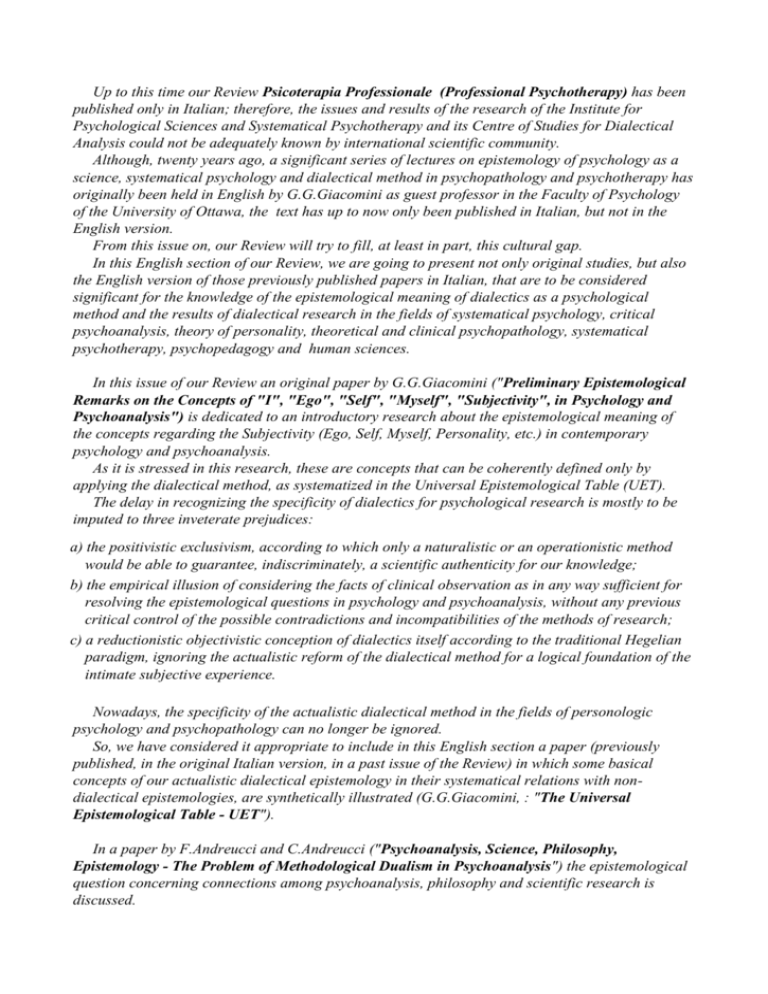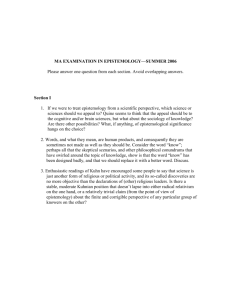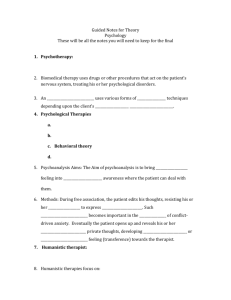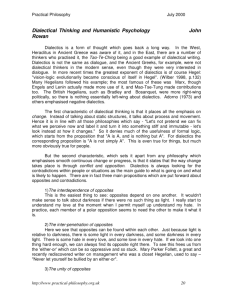Up to this time our Review Psicoterapia Professionale (Professional
advertisement

Up to this time our Review Psicoterapia Professionale (Professional Psychotherapy) has been published only in Italian; therefore, the issues and results of the research of the Institute for Psychological Sciences and Systematical Psychotherapy and its Centre of Studies for Dialectical Analysis could not be adequately known by international scientific community. Although, twenty years ago, a significant series of lectures on epistemology of psychology as a science, systematical psychology and dialectical method in psychopathology and psychotherapy has originally been held in English by G.G.Giacomini as guest professor in the Faculty of Psychology of the University of Ottawa, the text has up to now only been published in Italian, but not in the English version. From this issue on, our Review will try to fill, at least in part, this cultural gap. In this English section of our Review, we are going to present not only original studies, but also the English version of those previously published papers in Italian, that are to be considered significant for the knowledge of the epistemological meaning of dialectics as a psychological method and the results of dialectical research in the fields of systematical psychology, critical psychoanalysis, theory of personality, theoretical and clinical psychopathology, systematical psychotherapy, psychopedagogy and human sciences. In this issue of our Review an original paper by G.G.Giacomini ("Preliminary Epistemological Remarks on the Concepts of "I", "Ego", "Self", "Myself", "Subjectivity", in Psychology and Psychoanalysis") is dedicated to an introductory research about the epistemological meaning of the concepts regarding the Subjectivity (Ego, Self, Myself, Personality, etc.) in contemporary psychology and psychoanalysis. As it is stressed in this research, these are concepts that can be coherently defined only by applying the dialectical method, as systematized in the Universal Epistemological Table (UET). The delay in recognizing the specificity of dialectics for psychological research is mostly to be imputed to three inveterate prejudices: a) the positivistic exclusivism, according to which only a naturalistic or an operationistic method would be able to guarantee, indiscriminately, a scientific authenticity for our knowledge; b) the empirical illusion of considering the facts of clinical observation as in any way sufficient for resolving the epistemological questions in psychology and psychoanalysis, without any previous critical control of the possible contradictions and incompatibilities of the methods of research; c) a reductionistic objectivistic conception of dialectics itself according to the traditional Hegelian paradigm, ignoring the actualistic reform of the dialectical method for a logical foundation of the intimate subjective experience. Nowadays, the specificity of the actualistic dialectical method in the fields of personologic psychology and psychopathology can no longer be ignored. So, we have considered it appropriate to include in this English section a paper (previously published, in the original Italian version, in a past issue of the Review) in which some basical concepts of our actualistic dialectical epistemology in their systematical relations with nondialectical epistemologies, are synthetically illustrated (G.G.Giacomini, : "The Universal Epistemological Table - UET"). In a paper by F.Andreucci and C.Andreucci ("Psychoanalysis, Science, Philosophy, Epistemology - The Problem of Methodological Dualism in Psychoanalysis") the epistemological question concerning connections among psychoanalysis, philosophy and scientific research is discussed. In this issue of the Review many synoptical tables in an English version have also been included.






